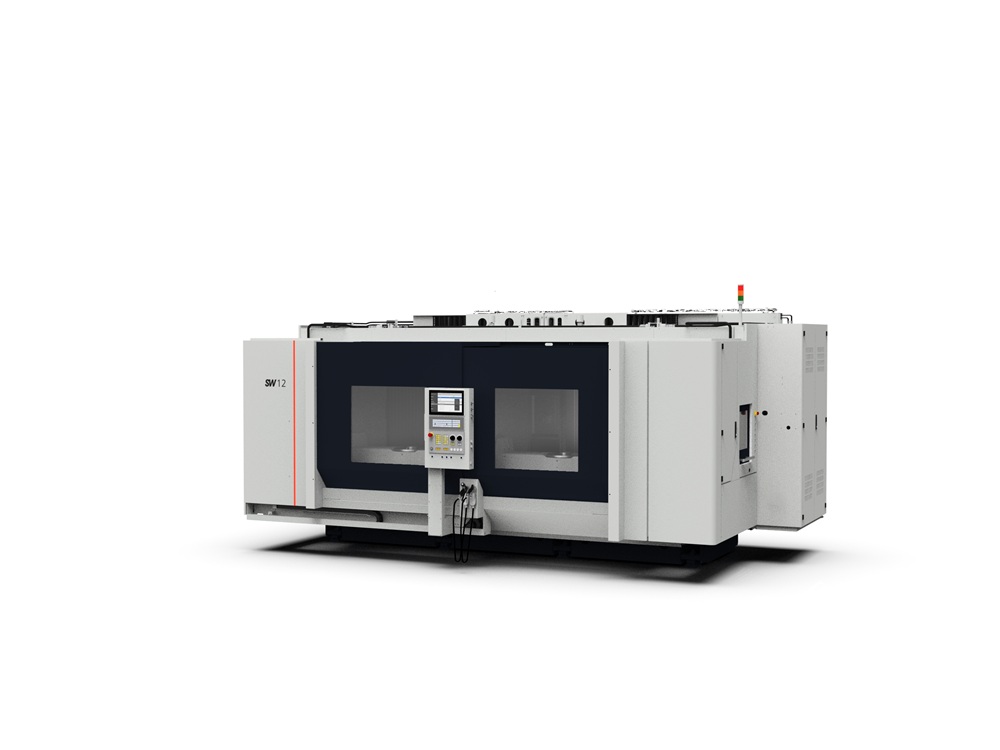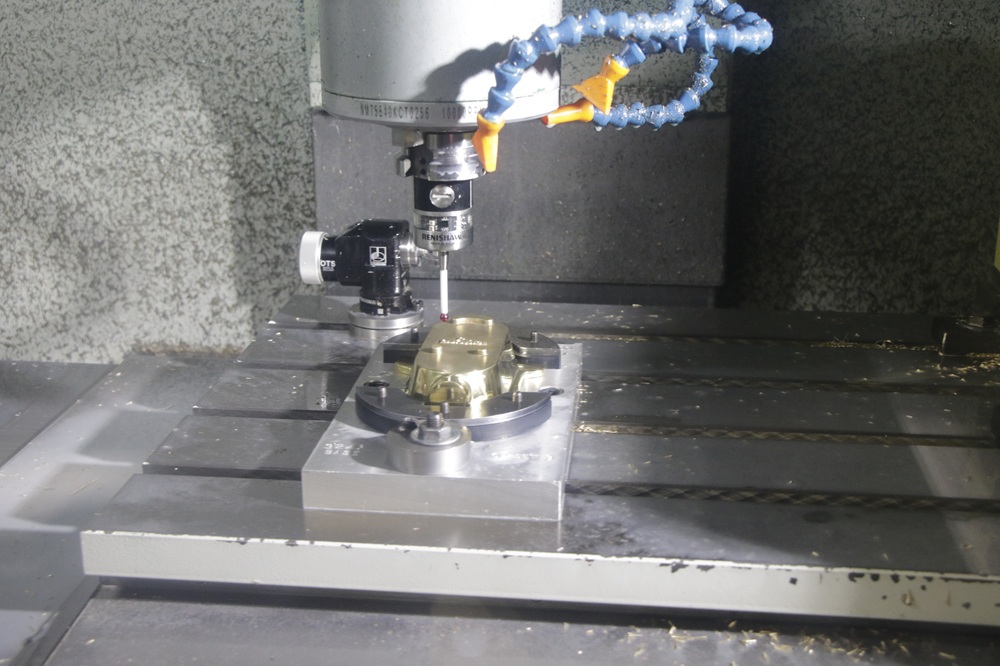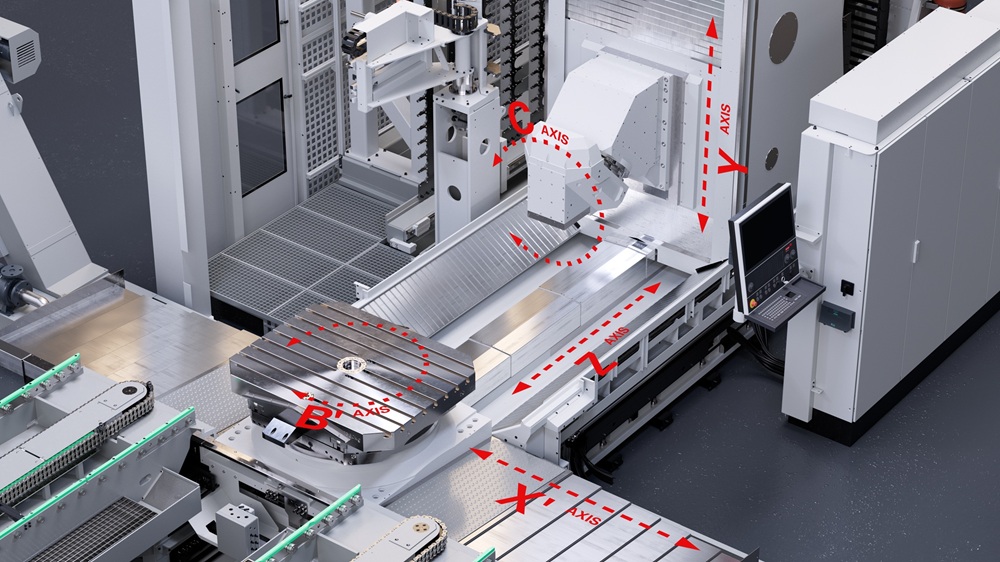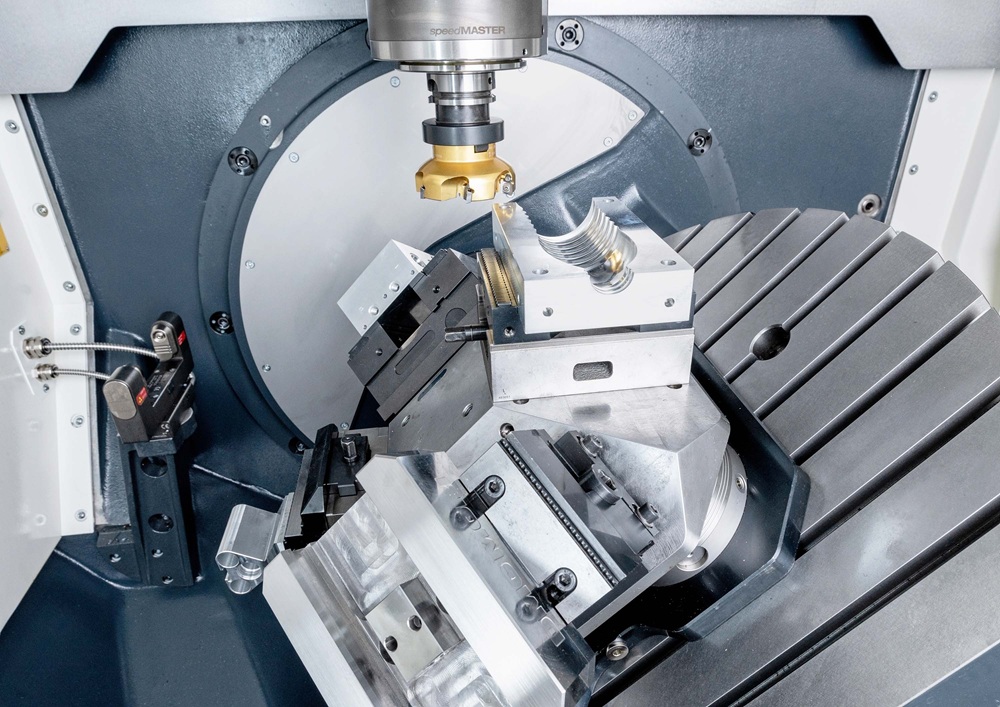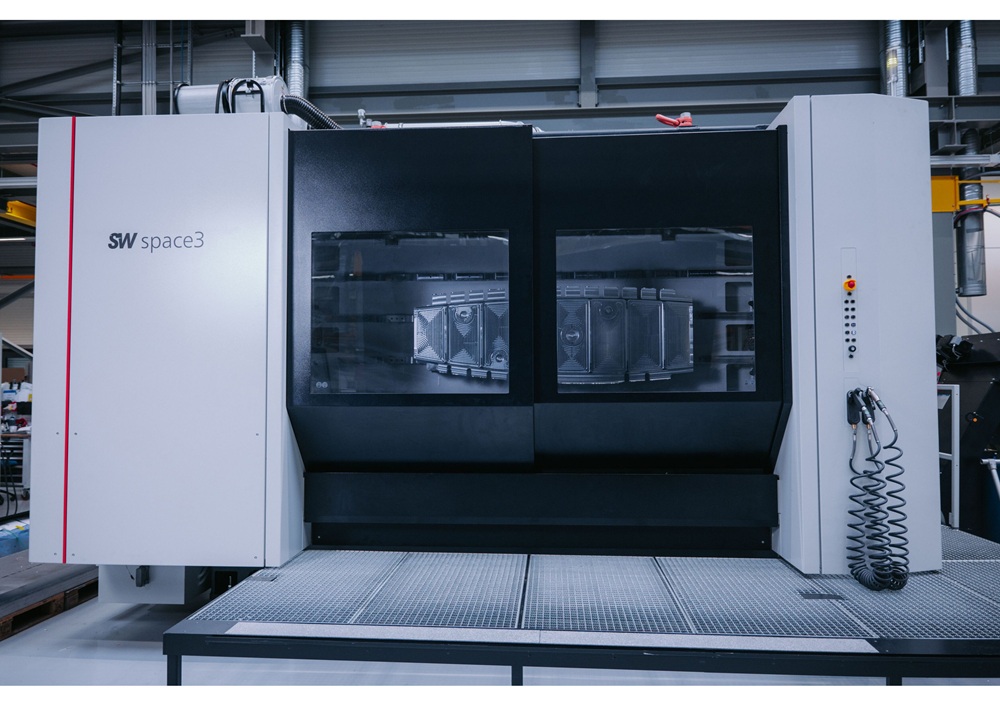The right solution for every application, from small to large series production: at this year’s EMO 2025 exhibition in Hanover, Schwäbische Werkzeugmaschinen (SW) is presenting a new machine tool on stand C05 in hall 12. With the BF 12-21D, SW says it is responding to the current trend in automotive engineering toward die-cast aluminium body parts. The BF 12-21D is suitable for high production volumes, in particular for the fast machining of frame and structural components.
“In automotive engineering, we’re seeing a clear trend toward the use of aluminium die-cast parts in vehicle body construction,” explains product manager Michael Kreuzberger. “These parts require less manufacturing precision than, for example, gearbox or stator housings. With the BF 12-21D, we offer an economical and dynamic machine concept for precisely these applications.”
The BF machine series differs from other SW machines in its structural design: to fit specific market conditions it features a hybrid axis configuration, utilising a linear drive for the X axis, while the Y and Z axes are driven by ball screws. SW also relies on proven twin-spindle technology to meet high productivity requirements. With two three-axis units and one spindle per working area, the BF 12-21D can replace two conventional single-spindle machines and achieve higher output with a smaller footprint, reports the company. When components are changed in one working area, the second spindle in the other working area can be used to achieve even higher productivity.
SW will also exhibit an established machining centre at EMO. The BA 442 is one of SW’s fastest and most sustainable machines. With four spindles, it offers high effectiveness per square metre of space while also being energy-efficient.
More information www.sw-machines.com






